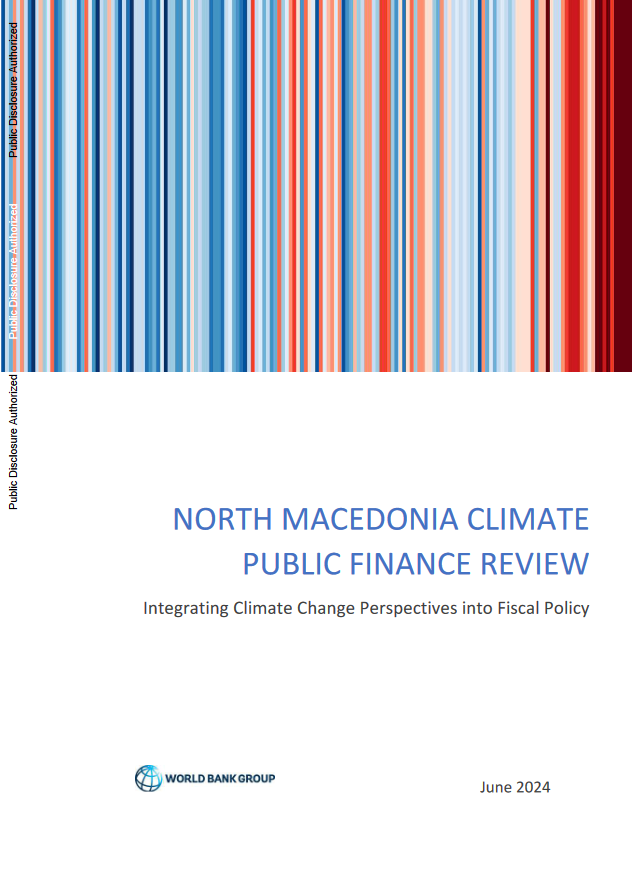North Macedonia’s economy is expected to show moderate growth in the medium term, with public finances continuing to be stretched. Although the country anticipates positive medium-term economic prospects, economic headwinds like geopolitical tensions and conflicts, and energy supply and price uncertainties pose significant challenges. Increasing expenditures and slowing revenue growth has seen fiscal space tighten, with public debt reaching 62 percent of GDP, with further increases ahead.
The progressive impact of a changing climate brings new challenges and makes the achievement of North Macedonia’s development goals much more difficult. This may complicate the country’s ability to achieve its climate goals while preserving fiscal sustainability given climate change presents additional strains on public finances. This report aims to highlight the links between climate and government finances—identifying the relevant risks and opportunities, while explaining how fiscal policy can help achieve climate objectives while also delivering economic, fiscal, and social outcomes.
Escalating physical and transition climate risks pose direct and indirect threats to macro-fiscal sustainability. Climate change physical hazards impact public finances through multiple channels, which can have complex interactions and can ultimately reduce fiscal space and compromise macro-fiscal sustainability. Physical risks, such as climate-related disasters, are increasing and have the potential to diminish the productivity of human, natural and social capital, thereby impeding economic growth. In the past three decades, North Macedonia experienced over USD 660 million in cumulative direct asset losses. Such events also cause economic, consumption, and well-being losses and introduce contingent liabilities that place pressure on public finances. The potential impacts of transition risks have been made more real with the introduction of the EU’s Carbon Border Adjustment Mechanism (CBAM), with manufacturing sectors being particularly exposed due to their relatively high emissions intensity and trade exposure. Indicative estimates suggest the CBAM compliance costs could be around USD 120 million per year in North Macedonia with exported electricity and iron and
steel products facing the largest compliance costs.

